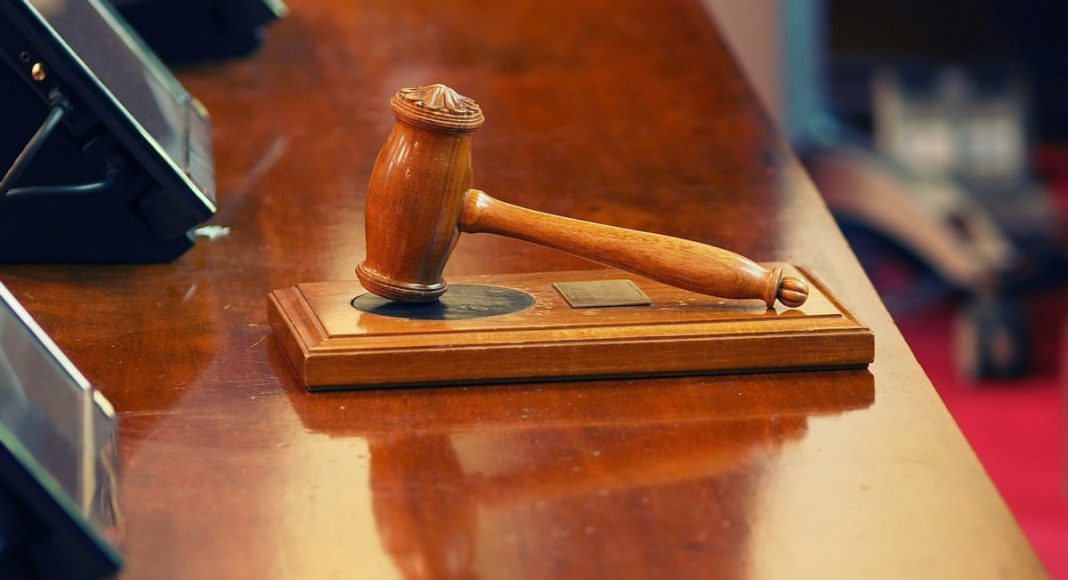Last week, the Federal Department of Justice (DOJ) filed a motion with the Ninth Circuit Court of Appeals to stay or remand appellate proceedings in its case against Rhonda Firestack-Harvey, Rolland Gregg and Michelle Gregg, the remaining members of the Kettle Falls Five, because it does not have funds to continue the prosecution. The Kettle Falls Five is the name given to a group of medical marijuana growers in Kettle Falls, a town in North East Washington. The group consisted of Rhonda Firestack-Harvey and Larry Harvey, their son Rolland Gregg and his wife Michelle, and Jason Zucker.
The Kettle Falls Five were charged by the federal government after a 2012 raid on their farm in Northeast Washington. The group was collectively growing medical cannabis plants in an amount permitted by state law. The federal government vigorously prosecuted the Kettle Falls Five over the last five years. The feds originally sought 10-year mandatory prison terms. The feds dropped charges against Larry Harvey who was battling stage four pancreatic cancer. Mr. Harvey passed away in August 2015.
Jason Zucker pleaded guilty and testified against the other defendants prior to trial. He was sentenced to 16 months of prison time based on his cooperation. The remaining defendants faced charges of growing, possessing, and distributing cannabis, in addition to charges relating to firearms found on the same property as the cannabis grow. Rhonda, Rolland, and Michelle were acquitted of all charges except growing cannabis. Michelle and Rhonda received a sentence of one year and a day and Rolland received a sentence of 33 months.
-
Related Story: DOJ Admits Serious Errors In Kettle Falls Five Prosecution
The Kettle Falls Five appealed to the Ninth Circuit. The DOJ was expected to continue its vigorous prosecution, which makes its recent motion to stay or remand the case quite a surprise. In its motion, the DOJ provided the following explanation:
This motion is based upon Congress denying funding to the Department of Justice for the prosecution of medical marijuana patients in states where medical marijuana is lawful. The purpose of this motion is to acknowledge that the United States was not authorized to spend money on the prosecution of the defendants after December of 2014 because the defendants strictly complied with the Washington State medical marijuana laws.
This refers to the Rohrabacher-Blumenauer Amendment which limits prosecution of state-compliant medical marijuana actors. As part of a federal budget deal in December 2014, Congress cut off funds for the federal prosecution of medical marijuana growers and users in states where medical cannabis is legal, so long as those actors are following state law. Since 2014 the Amendment has repeatedly been renewed.
The DOJ’s motion also cites United States v. McIntosh, in which the Ninth Circuit decided the Rohrabacher-Blumenauer Amendment prohibited the DOJ from “spending funds for the prosecution of individuals who engaged in conduct permitted by the state medical marijuana laws and fully complied with the laws.” The DOJ’s motion states that the “prohibition regarding DOJ expenditure of funds applies even though the prosecution was properly initiated prior to [Rohrabacher-Blumenauer’s] enactment.”
The DOJ asks the court to either back off on the appeal or to send the case back to the trial court. This is promising as it appears the DOJ may have finally seen the writing on the wall and is going to drop its case against the Five. However, it may also mean the DOJ is attempting to hold off on prosecuting the defendants to see if Congress reaffirms the Rohrbacher-Blumenauer Amendment, which is not guaranteed, especially given the current political status of our federal government. It should go without saying that Jeff Sessions has openly lobbied Congress against the Amendment.
In any event, this is an opportunity for defense counsel to ask the judge to toss out the case, which we fervently hope will be its eventual outcome. On a broader scale, this motion shows that the Rohrabacher-Blumenauer Amendment is a powerful tool to limit federal prosecution of medical cannabis growers.
Daniel Shortt is an attorney at Harris Bricken, a law firm with lawyers in Seattle, Portland, Los Angeles, San Francisco, Barcelona, and Beijing. This story was originally published on the Canna Law Blog.


